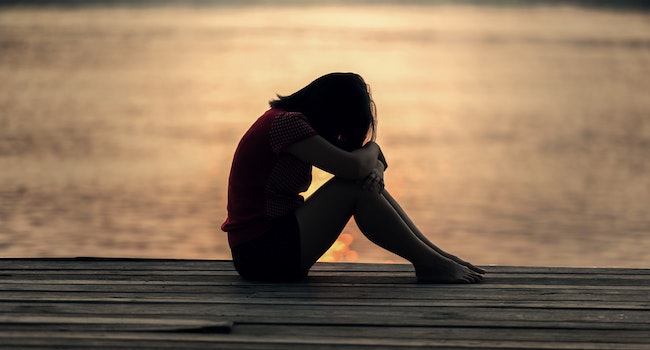
Depression is a mental health disorder that affects a person's mood, thoughts, and behaviors. It is characterized by sadness, hopelessness, and a loss of interest in activities a person once enjoyed. Depression can range in severity and duration from mild and temporary episodes to chronic and debilitating conditions that interfere with daily functioning.
Symptoms of depression include sleep disturbances, fatigue, feelings of worthlessness, difficulty concentrating, making decisions, persistent sadness, suicidal thoughts, and changes in appetite or weight. Genetic, environmental, and psychological factors can cause depression. It is a treatable condition with various forms of therapy, medication, and lifestyle changes that can help manage symptoms and improve overall well-being.
Treatment-resistant depression (TRD) is a type of depression that does not respond to standard treatments such as antidepressant medications and psychotherapy. It is the failure of at least two treatments at adequate doses and durations. TRD is a challenging condition to treat, affecting approximately 10-30% of individuals with depression. Working closely with a mental health professional to identify the underlying causes of TRD and develop an effective treatment plan is essential.
Psilocybin is a naturally occurring psychoactive compound found in certain species of mushrooms, known as "magic mushrooms." It has been used for centuries for its hallucinogenic properties and is currently being studied for its potential therapeutic effects on various mental health conditions, including depression and anxiety.
In a clinical trial, researchers tested the effects of psilocybin on people who have depression that doesn't respond to standard treatments. They randomly assigned the 233 participants to receive psilocybin at different doses (1 mg, 10 mg, or 25 mg) and psychological support. They measured the change in depression symptoms three and twelve weeks after the treatment using a depression rating scale and looked at secondary measures, including response rate and remission. The researchers also followed up with the participants to see if the effects lasted longer.
The group that received 25mg had the most significant improvement in symptoms, while the 10mg group had some improvement. Adverse events were reported in 77% of participants, including headaches, nausea, and dizziness. Suicidal ideation or behavior, or self-injury, occurred in all dose groups.
Overall, the study highlights the need for more extensive and extended trials to determine the efficacy and safety of psilocybin for treating depression. While the results of this study are promising, further research is needed before psilocybin can be considered a viable treatment option for depression.
__________
ClinicalTrials.gov NCT03775200, Feb-07-23
Depression Resources
About Major Depressive Disorder
Managing Depression in Type 2 Diabetes with Melissa officinalis Extract
Zuranolone For Anxiety and Insomnia in Postpartum Depression
Improving Treatment for Bipolarl Depression
Creative Interventions to Alleviate Anxiety, Depression, during Protective Isolation
Boosting Physical Activity for Depression: A Hopeful Approach for In-Patient Treatment
Nasal Spray Effects on Treatment-Resistant Depression
Personalizing Treatment for Clinical Depression with Brain Stimulation
Probiotics may Improve Brain Function in Depression
Clinical Trial examines Predictors of Relapse in Psychotic Depression
Rapid Improvement of Postpartum Depression Symptoms with Brexanolone
Is Psilocybin Safe and Effective for Treatment-Resistant Depression?
Clinical Study Shows Mediterranean Diet Benefiicial for Depression
Stratified Care vs. Stepped Care: Which Approach is More Effective for Treating Depression?
Aural Rehabilitation is Effective in Treating Depression in Older Adults
Art Therapy: A Promising Intervention for COPD Patients with Depression
Can Cognitive Behavioral Therapy for Insomnia help Alleviate Depression?
Clinical Trial Proves Exercise is Effective in Treating Depression in the Elderly
Clinical Trial shows Balanced Diet can Reduce Depression
Depression Resources
About Major Depressive Disorder
Managing Depression in Type 2 Diabetes with Melissa officinalis Extract
Zuranolone For Anxiety and Insomnia in Postpartum Depression
Improving Treatment for Bipolarl Depression
Creative Interventions to Alleviate Anxiety, Depression, during Protective Isolation
Boosting Physical Activity for Depression: A Hopeful Approach for In-Patient Treatment
Nasal Spray Effects on Treatment-Resistant Depression
Personalizing Treatment for Clinical Depression with Brain Stimulation
Probiotics may Improve Brain Function in Depression
Clinical Trial examines Predictors of Relapse in Psychotic Depression
Rapid Improvement of Postpartum Depression Symptoms with Brexanolone
Is Psilocybin Safe and Effective for Treatment-Resistant Depression?
Clinical Study Shows Mediterranean Diet Benefiicial for Depression
Stratified Care vs. Stepped Care: Which Approach is More Effective for Treating Depression?
Aural Rehabilitation is Effective in Treating Depression in Older Adults
Art Therapy: A Promising Intervention for COPD Patients with Depression
Can Cognitive Behavioral Therapy for Insomnia help Alleviate Depression?
Clinical Trial Proves Exercise is Effective in Treating Depression in the Elderly
Clinical Trial shows Balanced Diet can Reduce Depression
